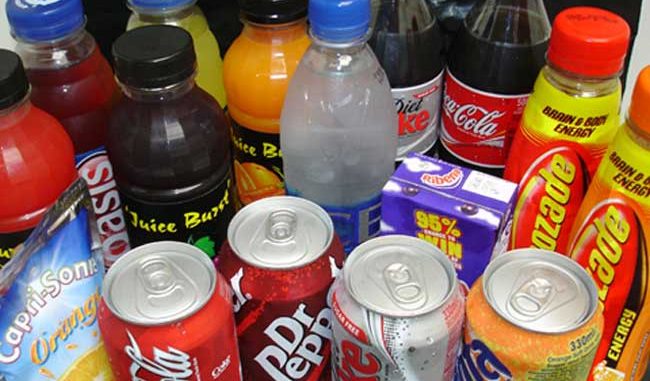
UK doctors say that a 20 percent tax on sugary drinks should be introduced to subsidise the sale of fruit and vegetables and fight the obesity crisis in Britain.
The British Medical Association (BMA) said imposing the tax could reduce the prevalence of obesity in the UK by around 180,000 people.

BYPASS THE CENSORS
Sign up to get unfiltered news delivered straight to your inbox.
You can unsubscribe any time. By subscribing you agree to our Terms of Use
Latest Video
The organisation suggests that money raised from the tax could be used to subsidise cheaper fruit and vegetables for poor families.
The Guardian reports:
A report from the British Medical Association demands tough regulatory action on a whole range of issues, from taxation to a clampdown on the marketing of unhealthy food and drinks to children, mandatory standards on the food available in all schools and bans on clusters of fast food outlets.
“Doctors are increasingly concerned about the impact of poor diet, which is responsible for up to 70,000 deaths a year, and has the greatest impact on the NHS budget, costing £6bn annually,” said Prof Sheila Hollins, chair of the BMA board of science.
“While sugar-sweetened drinks are very high in calories they are of limited nutritional value and when people in the UK are already consuming far too much sugar, we are increasingly concerned about how they contribute towards conditions like diabetes.”
Other countries have begun to experiment with sugar taxes – the most wide-reaching of which is in Mexico. Although it set at 10%, public health experts have recently reported that it is having an effect. Berkeley in California also brought in a tax recently, after a battle with food industry champions.
“We know from experiences in other countries that taxation on unhealthy food and drinks can improve health outcomes, and the strongest evidence of effectiveness is for a tax on sugar-sweetened beverages. If a tax of at least 20% is introduced, it could reduce the prevalence of obesity in the UK by around 180,000 people,” said Hollins.
“We know that the majority of the UK population, particularly low-income households, are not consuming enough fruit and vegetables, so financial measures should also be considered to subsidise their price, which has risen by 30% since 2008. This is an important way to help redress the imbalance highlighted previously between the cost of healthy and unhealthy products, which particularly impacts on individuals and families affected by food poverty.”
In 2011, David Cameron said the government was considering taxes on unhealthy foods, which would include those high in sugars, salt and saturated fats,. But when the ife sciences minister George Freeman raised the issue recently, he was slapped down. Asked in May if a sugar tax was being considered, the prime minister’s spokesman said a definitive no. The government would be looking at other ways of tackling obesity, the spokesman said.
The government has chosen to address obesity through the voluntary responsibility deal with the food industry, which asks companies to make pledges on measures such as labelling and cutting calories in their packaged food products.
But the government’s scientific advisory committee on nutrition (SACN) will this week publish its final report on carbohydrates in the nation’s diet, including sugars . Its draft report a year ago, which went out to consultation, said the nation should halve its sugar intake. Public Health England is now conducting a review into all the measures which might help, including fiscal measures.


